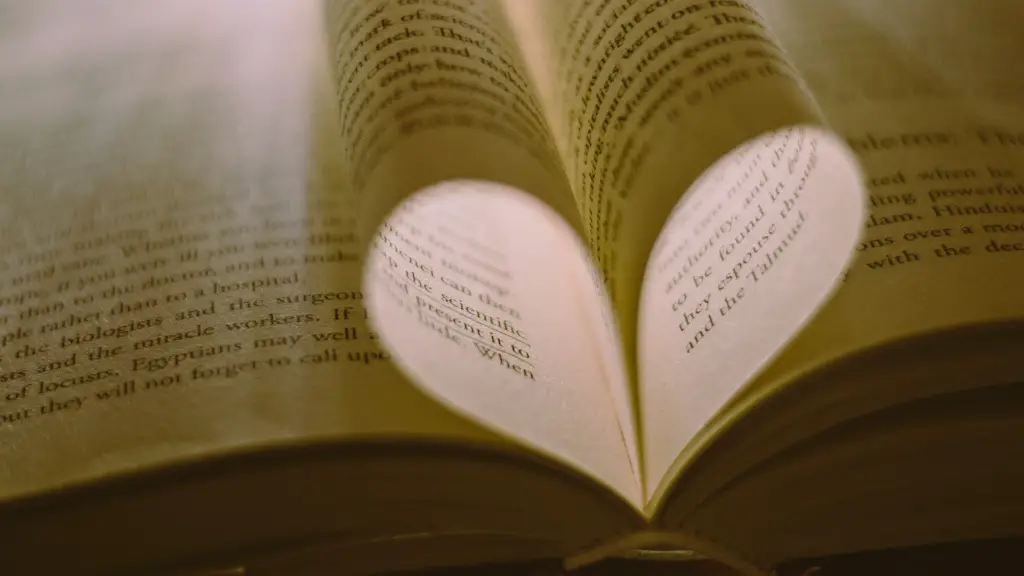Introduction to Indigenous Poetry
Indigenous poetry is an exciting and vital part of literature that is appreciated and valued around the world. This unique style of poetry is an important medium to express feelings, culture, and values that may not have been expressed otherwise. Indigenous poetry comes from many different countries, but they all have the same fundamental underlying theme; to preserve culture and history in an effort to maintain a sense of identity. The poems are often filled with creativity and a unique way of conveying stories, experiences and feelings. These works of art often provide invaluable insight into the minds of the Indigenous people, while providing dynamic communication between them.
The Origin of Indigenous Poetry
Indigenou
s Poetry has its roots in traditional oral storytelling, which has been passed from generation to generation for centuries. This style of story-telling has been used to tell stories, histories and cultural values, which are understood and shared among the group. It is another form of communication between the people, so that these memories and values are remembered for perpetuity. This oral storytelling has developed into a more structured form known as poetry, which has become a distinguishing feature of Indigenous cultures around the world.
Authentic Indigenous Poetry
Authentic Indigenous Poetry is written or sung in the traditional language of the Indigenous people, which is often limited to the geographical area of the tribe or language. This unique language will reflect the culture, values, beliefs and souls of the Indigenous people. This type of poetry is unique in its power to capture the essence of the people and their stories in an authentic form of communication. It is also used to educate, inform and communicate ideas among the Indigenous people, while also providing an important link to the past and a reminder of the values that are held dearly by the people.
Indigenous Art in Poetry
Indigenous art and poetry go hand in hand, as artistic forms often synchronize with their traditional writings. The use of art in poetic forms emphasizes the connection between the physical and spiritual world, and can be seen throughout many Indigenous cultures. Artistic works often portray various aspects of life, as well as values, beliefs, and religious practices that are held within the culture. Furthermore, paintings and sculptures are often used as metaphors to tell stories, provide stories with visual representation, and create a bridge between the physical and spiritual worlds. Moreover, art adds emotion and beauty to the poem, which can make it even more powerful and meaningful.
Indigenous Poetry in the Modern World
Today, Indigenous Poetry is still an important part of global culture, even in modern times. It continues to provide insight into the culture, history and values of the Indigenous people, while also serving a therapeutic purpose. The universal stories found in modern Indigenous Poetry are able to be appreciated and valued by all people, as they present a relevant and meaningful message. Furthermore, Indigneous Poetry has been used to raise awareness and fight for justice for the Indigenous people, by providing a platform for Indigenous voices to be heard around the world.
Contemporary Indigenous Poets
Some of the most celebrated and gifted Indigenous poets in modern times include figures such as Joy Harjo from the Muscogee Creek Nation, Louise Erdrich from the Turtle Mountain Chippewa Tribe and Simon J. Ortiz from the Acoma Pueblo Nation. These three writers are amongst the most successful living Indigenous poets and use their unique style of writing to capture stories and experiences in a beautiful and moving way. Their work and writing is held in high regard and continues to be an important source of inspiration for many Indigenous and non-Indigenous writers around the world.
The Power of Indigenous Words
Indigenous words are powerful, and when spoken correctly can evoke strong emotions within an individual and foster a strong connection with the land and culture. This power of the words can be harnessed in the form of poetry, as it can speak to the soul and offer an insight into the power and potential of the words in their native language. Furthermore, it is a reminder of the importance of language and keeping the Indigenous culture alive.
Impact of Indigenous Poetry on Society
Indigenous poetry has had a positive and profound impact on our society over the years. Its positive message and use of language have inspired and moved many people, while providing an important platform for Indigenous voices to be heard around the world. This form of literature has been essential in helping to preserve and promote Indigenous culture, while also giving people an insight into the power of language and its connection to the land. Additionally, it has created an outlet for Indigenous people to express themselves and their culture, in a meaningful and inspiring way.
Conclusion
Indigenous Poetry is an important and powerful form of literature that has enriched our society and culture over the years. The poetry is often filled with emotion, creativity, and a unique way of conveying stories and experiences. Indigenous Poets are incredibly important, as they provide a distinct voice from the Indigenous people and add to their culture and history. Ultimately, Indigenous poetry continues to be an important way of expression, education and communication between the Indigenous people and cultures.


